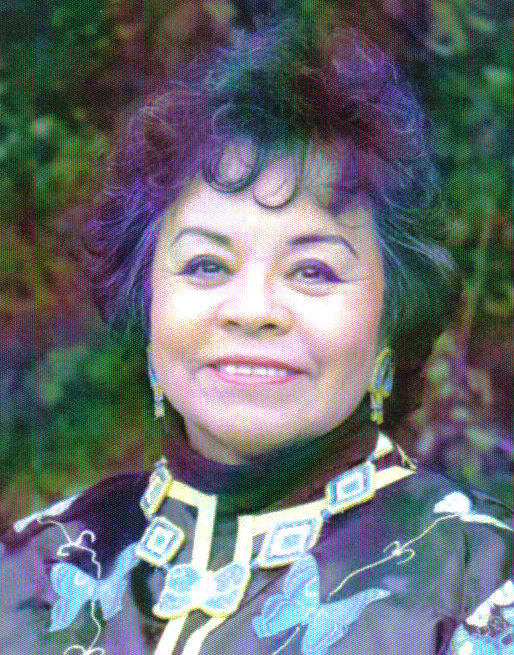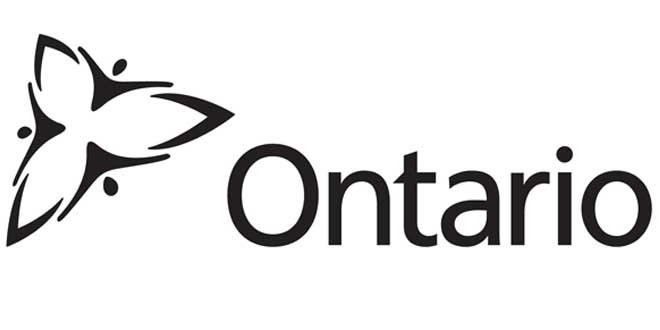EDITOR’S NOTE: A recognized language keeper, Bea Shawanda is an Odawa-Pottowattomi from Wikwemikong and a survivor of the St. Joseph Residential School in Spanish. Receiving her higher education from the University of California and University of Texas, Ms. Shawanda has been a frontline worker for over 35 years in both Canada and the United States in the fields of health, education, social and family development, organizational leadership and multicultural training. She has commissioned books in many of these subjects and is also involved in curriculum development, audio-visual productions and heads her own human resources development/leadership training organization. Ms. Shawanda is a featured motivational speaker and a well-known traditional storyteller.
by Bea Shawanda
The closing event of the Truth and Reconciliation Commission (TRC) last week in Ottawa has facilitated a time of reflection of the past six years for many First Nations people across Canada as well as for my family and I. Acknowledgement is given to residential school “survivors” across the country, the TRC and the Aboriginal Healing Foundation, churches, and the non-Native people who have made this journey with us through their support. There have been many who have already taken the first steps to building new relationships in Canada and we all recognize this can’t be done unless we do it together. As a former student of a residential school and with 45 plus years of working with Native people in both Canada and the US and also working in multicultural settings, I have learned many important lessons in life. These have included lessons about human relationships, about differences and commonalities among people, lessons about how the past impacts the present and the future. One of the most important lessons is about sincerely believing each person belongs to the world human family and that each person brings his special gifts the Creator has given him to make life better on this planet. Those special gifts are his culture and all that it entails. The TRC closing events have reminded me our Canadian family has been challenged to weave a new legacy of fortitude, hope and resilience among all of its peoples so we do have a better world for today and the future.
Moving to a new legacy of fortitude, hope and resilience requires each of us personal honesty, mutual support, compassion for one another and an openness for a real partnership among our Canadian citizens so we can make a better place for all. The TRC events have both modeled and challenged us to recognize the beauty of our differences is our right to belong to the world human family.
Perhaps the story behind the words of Crazy Horse, a great spiritual warrior of the Sioux, “today is a good day to die” is a story we can all live by, for it is the story of the sanctity of life and respect for others. When he spoke these words, he did not mean he was completely ready to go into battle to win or die trying. In this modern day, many of our protest citizens use this as an anthem signifying they will fight to the end—whatever that end might be. Before battle, Crazy Horse spent much time with spiritual people; he would pray and meditate. He learned the values of life that were important and the ideals that made a good warrior. He worked at learning to fully understand what he would be fighting for and whether the battle would be worth it. He knew he would be fighting another man, just like himself; perhaps a man with a family and a village, just like himself. His spiritual teachers told him to pray for his enemy for he too, had a right to life. After praying, and recognizing his enemy probably wanted the same things as he did, Crazy Horse acknowledged his enemy was also part of creation. “Today is a good day to die” was Crazy Horse’s prayer for the sacredness of life of all peoples and things.

He knew that if he died, he was in a good place to meet his Creator because he wished well for his enemy. (Buffalochild, Albert Lightning, Alberta 1976, family friend)
In looking at the experience of TRC, the First Nations people, and Canada, there has been a road map that has slowly built showing us, as a country, where and how to become a benevolent country that is just. We have looked at the courage of other peoples’ experiences in the world in dealing with trauma: the Holocaust, Hiroshima and Nagasaki, Vietnam, and many others with their determination and their success to move forward.
There are many issues that can slow down the journey; that can de-rail efforts for trauma recovery. Languaging, the ‘hot words’ such as compensation, survivor, trauma, culture, genocide, grief, can have a history of being ‘war words;’ words that have a group of people lined up on one side of the fence, and another group of people lined up on the other side of the fence. The words and sometimes the way they are used may be accusatory, blaming, and those on the receiving end, feel attacked and become defensive. One cannot learn if they feel like they are under attack. These can discourage a willingness to work together for solutions.
The word ‘compensation’ appears to be a threat to the economy or to the taxpayer dollars. There seems to be veiled messages that those being compensated may not be deserving or that it is another ‘handout.’ In times past, bartering was a medium of exchange. Today it is money. Has one ever tried stuffing a gas tank with six rabbits? Probably wouldn’t work!
‘Survivor’ describes surviving a situation, but at the same time, it is a diagnosis of “something wrong.” This word allows us to stay ‘stuck’ in grieving the painful story carried by survivors and they keep re-visiting the pain. The griever has a strong habituated identification with the pain and it becomes who the griever is, rather than who he really is. The term ‘survivor’ boxes us in and we have difficulty reaching the full potential of what the Creator wanted us to be. We get caught up in defining self and our pain rather than being able to complete unresolved grief. Completed griefwork is to be as honest as we can be, speak the full truth of the experiences and be able to appreciate the ‘best friend’ we had in school, the nature walks, the Christmas concerts with the candy, along with the painful parts of the story. Understanding and working through incomplete grief allows us to take responsibility for our current reactions to past situations, otherwise we will forever feel like the victim. It becomes more harmful when we sustain and re-create the pain that is attached to memories. The heart is eternally broken, difficult for recovery. Cumulative grief continues to show up in the traumas of the First Nations family and community.
Our first and second generation of children need to know their recent history of how Residential Schools have impacted their families so they can have a greater understanding of how to move forward from the pain.
The many issues facing First Nations people happened over multiple generations. It is taking time to work through those issues. Lessons we have learned is that history repeats itself, how can we do it differently this time? Canada has a second chance for a new beginning. Canada is our flower garden. How are we watering our garden? Negativity and judgements towards others will water the weeds and eventually kill the flowers.
Goodwill among people will water the flowers and allow our country to blossom. Today, I read the intentions of the Saskatchewan government already setting up meetings with the Saskatchewan First Nations leaders to move forward on the TRC recommendations. It gave me hope that we can all work together.
It takes a long time to not feel like you’re alone, a long time to feel at home anywhere you go, a long time to search and discover who you are. But if you discover who you are and you go all the way, it takes you beyond race, color, categories, feuds, judgements and negative thoughts about anyone and what you find out is, your humanity.
When you no longer feel you are the outsider, you have come home. You know who you are, you’ve once again found your place in the world human family. There is no such thing as the human family…and others. As long as you leave anyone out, you are the alien and that search for belonging has to continue. In the end, all that matters is what good did you do?
Thank you to all the former residential school students who have endured and who have not given up to adversity in their lives and for the courage to move forward in leaving a new legacy of fortitude, hope and resilience! We are proud of our ancestors, let us make them proud of us in the positive actions we take to move forward.




